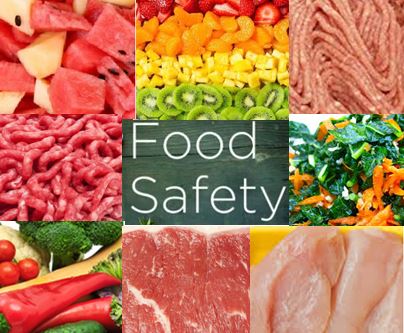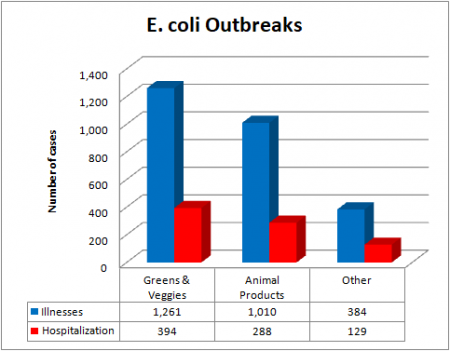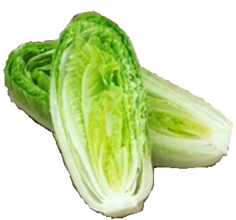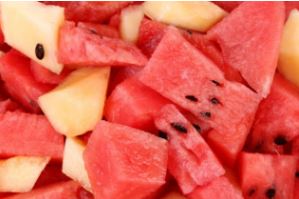Food Safety Outbreaks in 2018- Year in Review
 Looking at the outbreak data from theCenters for Disease Control and Prevention (CDC) indicates that 2018 was one of the worst years for food safety outbreaks. The CDC investigated 28 outbreaks, much more than the eight outbreaks in 2017.
Looking at the outbreak data from theCenters for Disease Control and Prevention (CDC) indicates that 2018 was one of the worst years for food safety outbreaks. The CDC investigated 28 outbreaks, much more than the eight outbreaks in 2017.
While over 80 percent of foodborne illness not associated with an outbreak of infections and an increase in outbreaks does not necessarily mean that more people get sick, the increase in large outbreaks is nevertheless meaningful.
It is true that technology has made it possible to spot minor outbreaks and tie them together. Local health authorities have received increased resources to collect and investigate foodborne illnesses. However, the increase in outbreaks in 2018 goes way beyond these explanations. 2018 was plagued with several massive outbreaks.
2018 Top 10 Food Safety Outbreaks in the US
- Romaine lettuce 2 outbreaks coli O157: H7
- Ground beef JBS SalmonellaNewport
- Cyclospora 2 outbreaks Fresh Express and DelMonte
- Kratom Salmonella
- Raw Turkey SalmonellaInfections Jennie-O Turkey
- Kellogg’s Honey Smacks Cereal – SalmonellaMbandaka
- Hy-Vee Spring Pasta salad SalmonellaSan diego
- Chicken salad SalmonellaTriple T Specialty Meats Inc.
- Raw chicken Salmonella Infantis
- Pre-cut melons Caito Foods, SalmonellaAdelaide
The outbreaks were almost evenly divided between fruit and vegetables and meat, as the main reasons for E. coli outbreaks.

Adopted from CDC data 1998-2017
Romaine Lettuce
The most notable outbreaks of 2018 were the two outbreaks due to E. coliO157: H7 in romaine lettuce. The initial outbreak started in March and lasted to June. It killed five people and sickened 210 in 36 states, and caused 96 hospitalizations, making it the largest U.S. E. coli outbreak over a decade. The FDA tied the outbreak to Yuma, AZ growing region. While there was no official recall, the FDA warned the publi  c not to consume romaine lettuce. This romaine lettuce outbreak was the most serious outbreak by the fresh produce industry since the deadly 2006 outbreak of E. coli O157:H7 from fresh bagged spinach. In November, consumers had another romaine lettuce recall when the CDC warned people again not to consume romaine lettuce due to an E. coli outbreak, this time the lettuce originated from Northern and Central California. Eventually the outbreak was linked to Adam Brothers Farm in Santa Maria, CA. The FDA found the outbreak strain of E. coli O157H:7 in the sediment of an irrigation reservoir.
c not to consume romaine lettuce. This romaine lettuce outbreak was the most serious outbreak by the fresh produce industry since the deadly 2006 outbreak of E. coli O157:H7 from fresh bagged spinach. In November, consumers had another romaine lettuce recall when the CDC warned people again not to consume romaine lettuce due to an E. coli outbreak, this time the lettuce originated from Northern and Central California. Eventually the outbreak was linked to Adam Brothers Farm in Santa Maria, CA. The FDA found the outbreak strain of E. coli O157H:7 in the sediment of an irrigation reservoir.
Ground beef JBS Tolleson Salmonella Newport
JBS Tolleson Inc. in Arizona (one of the nation’s biggest beef processors) caused a massive multistate recall due to Salmonella Newport. The outbreak had 333 confirmed cases, with 91 people hospitalized to date. The company recalled more than 12 million pounds of beef from its Tolleson, AZ facility.
Cyclospora Caused two outbreaks: Fresh Express (McDonald’s) and Del Monte
There were two large outbreaks of Cyclospora, tied to McDonald’s salads and Del Monte vegetable trays. In July McDonald’s removed salads from 3,000 restaurants in the United States due to Cyclospora. According to the CDC, the McDonald’s salads got 511 people ill, and 24 people hospitalized in 16 states. At the same time period the Del Monte trays caused 250 illnesses, 8 hospitalizations in 4 states. This is the first time that Cyclospora was found in produce grown in the United States.
Kratom Salmonella
In 2018, 199 people in 41 states were infected with Salmonella, and 50 people got hospitalized from kratom. Kratom is an addictive opioid, this year it was also related to a salmonella problem that was uncovered. The Salmonella problem has probably been occurring for a long time but was discovered this year. The kratom-linked outbreak included infections from several types of Salmonella — Salmonella I 4,[5],12:b:-, Salmonella Heidelberg, Salmonella Javiana, Salmonella Okatie, Salmonella Weltevreden, and Salmonella Thompson.
Raw Turkey Salmonella Infections Jennie-O Turkey
An initial recall of Jennie-O Turkey on November 15, was followed by an additional recall on December 21. Jennie-O Turkey recalled 164,210 pounds of raw ground turkey products contaminated with Salmonella Reading, The CDC reported that 216 people got ill, 84 people were hospitalized and one died in 38 states. The patient tested positive for Salmonella Reading and the samples from the case-patient and from the ground turkey were found to be closely related genetically.
Kellogg’s Honey Smacks Cereal – Salmonella Mbandaka
 On May 17, 2018 the FDA learned about a cluster of Salmonella Mbandaka illnesses in multiple states and on June 15, 2018 the FDA connected the outbreak to Kellogg’s Honey Smacks cereal. As a result, the company recalled the cereal. However, the product was not removed from many store shelves, and the CDC warned people not to consume the product. In September the FDA again has advised consumers “not to eat and discard any Kellogg’s Honey Smack cereal” as part of an ongoing salmonella outbreak linked to the popular breakfast product. 135 people have become ill due to the consumption of the cereal, 35 were hospitalized in 36 states.
On May 17, 2018 the FDA learned about a cluster of Salmonella Mbandaka illnesses in multiple states and on June 15, 2018 the FDA connected the outbreak to Kellogg’s Honey Smacks cereal. As a result, the company recalled the cereal. However, the product was not removed from many store shelves, and the CDC warned people not to consume the product. In September the FDA again has advised consumers “not to eat and discard any Kellogg’s Honey Smack cereal” as part of an ongoing salmonella outbreak linked to the popular breakfast product. 135 people have become ill due to the consumption of the cereal, 35 were hospitalized in 36 states.
Hy-Vee Spring Pasta salad Salmonella San diego
Salmonella Sandiego and Salmonella enteric subspecies IIIb outbreak was linked to the recalled HyVee Spring Pasta Salads. The product sickened at least 101 people, and 25 people were hospitalized in 10 states. That outbreak lasted from June to September 2018.
Chicken salad Salmonella Triple T Specialty Meats Inc.
Triple T Specialty Meats, Inc. recalled approximately 20,630 pounds of ready-to-eat chicken salad products contaminated with Salmonella Typhimurium. The recalled product caused at least 265 illnesses, with 94 people hospitalized and one death.
Raw chicken multi-drug resistant Salmonella Infantis
92 people infected with the outbreak strain of Salmonella Infantis, 29 were hospitalized in 29 states. A single, common supplier of raw chicken products or of the live chickens has not been identified.
Pre-cut melons Caito Foods, Salmonella Adelaide
 In this outbreak, 77 people were sickened, and 36 were hospitalized in nine states due to Salmonella Adelaide. The number of hospitalized people is a very high percentage for a Salmonella outbreak. All of the epidemiologic and traceback evidence indicated that pre-cut melons supplied by Caito Foods were the likely source of this outbreak. On June 8, 2018, Caito Foods recalled fresh-cut watermelon, honeydew melon, cantaloupe, and fresh-cut fruit medley products that were produced at the Caito Foods Facility in Indianapolis.
In this outbreak, 77 people were sickened, and 36 were hospitalized in nine states due to Salmonella Adelaide. The number of hospitalized people is a very high percentage for a Salmonella outbreak. All of the epidemiologic and traceback evidence indicated that pre-cut melons supplied by Caito Foods were the likely source of this outbreak. On June 8, 2018, Caito Foods recalled fresh-cut watermelon, honeydew melon, cantaloupe, and fresh-cut fruit medley products that were produced at the Caito Foods Facility in Indianapolis.
The Largest Listeria monocytogenes outbreak in history
In addition to the US outbreaks, we will be remised if we did not report the largest Listeria monocytogenes outbreak ever: 1,060 cases and 216 deaths occurred between Jan. 1, 2017 and July 17, 2018 in South Africa. The outbreak was linked to ready-to-eat processed meat produced by Tiger Brands in its Enterprise Foods production facility in Polokwane. The outbreak was caused by a strain of Listeria monocytogenes, known as ST6.
Although outbreaks are not the only indicator of food safety, they do have a negatively impact on the public perception of food safety. While we are hoping that 2019 will be a better and safer year, we should not put our heads in the sand, and confront this worrying trending.
